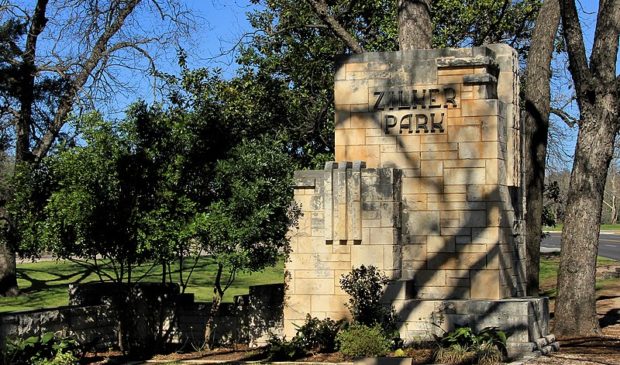Parks board continues weighing Zilker Park outreach efforts
Monday, February 28, 2022 by
Amy Smith The fabled adage, “Please all and you will please none,” seems to be an apt description of many of the city’s community engagement endeavors, with the ongoing outreach around the Zilker Metropolitan Park Vision Plan serving as a timely example.
On the one hand, the city goes to great lengths to reach out to various communities, conduct surveys and hold pop-up events to gather input on planning projects or programs. On the other hand, there are always segments of the community that either don’t wish to participate or are caught unawares and express frustration over being left out of the conversation. Then there are other community members – often the same people – who are always aware and eager to weigh in on a topic.
No matter the outcome of community outreach, there is a widely held belief that city management already has a preconceived notion of how to proceed on a project before ever starting the community engagement process.
These points were just part of a lengthy discussion at the Parks and Recreation Board meeting Tuesday night, with community engagement processes and the Zilker Park plan appearing as separate items on the agenda while also overlapping with each other.
Board members had so much to say about both agenda items that the Zilker presentation and discussion were cut short for time; the parks board is expected to continue its dialogue on Zilker and community outreach at its next meeting.
Board Member Rich DePalma noted the lack of participation of Black and Latino and other underrepresented communities in the planning process for Zilker, the city’s oldest and busiest metropolitan park.
“How do we balance (the lack of representation) in any situation within the general population?” he asked.
Speaking on a broader scale, Marion Sanchez, a division manager of the city’s community engagement team, cited the Asian American Quality of Life Initiative as a successful example of getting a specific population more involved.
“One practice that we are trying to incorporate more is what is called strategic co-creation. And what it is, is really sitting with the community and creating the whole outline on how we’re going to do the engagement and the outreach. That brings everybody to the table at the same time,” Sanchez said. “So if you can think about it as two journeys that are parallel to each other, we have the community advising (on engagement) and the community providing (input).”
Board Member Sarah Faust suggested that city staffers don’t always present a clear picture of the results of community outreach efforts. “I feel like when community engagement is presented to the board, it comes in the form of a PowerPoint, and there’s different levels of data that’s presented to us,” she said, adding that she didn’t know until Tuesday’s presentation that the city’s SpeakUp Austin survey tool is not statistically valid.
Faust also recalled the prolonged debate over whether to sell alcohol at the Zilker Cafe, a zoning change proposal that the parks board recommended against and the Planning Commission ultimately rejected. Faust noted that Parks and Recreation staffers tried to persuade the board to recommend alcohol sales at the cafe because a survey of park patrons several years ago revealed they wanted beer and wine options on the menu. A closer look at the survey results, however, revealed that only a small fraction of the respondents favored alcohol sales, Faust said.
“Following those presentations from PARD staffers, I realized I wasn’t understanding … the language that was being used in representing the community engagement results,” Faust said, explaining her subsequent deep dive into the survey results.
Expect more deep dives into the Zilker planning process. A final draft of the proposed plan is expected to be released in late June before it goes through boards and commissions for review, with City Council having the final say sometime this fall.
Photo by Larry D. Moore, CC BY-SA 3.0, via Wikimedia Commons.
The Austin Monitor’s work is made possible by donations from the community. Though our reporting covers donors from time to time, we are careful to keep business and editorial efforts separate while maintaining transparency. A complete list of donors is available here, and our code of ethics is explained here.
You're a community leader
And we’re honored you look to us for serious, in-depth news. You know a strong community needs local and dedicated watchdog reporting. We’re here for you and that won’t change. Now will you take the powerful next step and support our nonprofit news organization?










